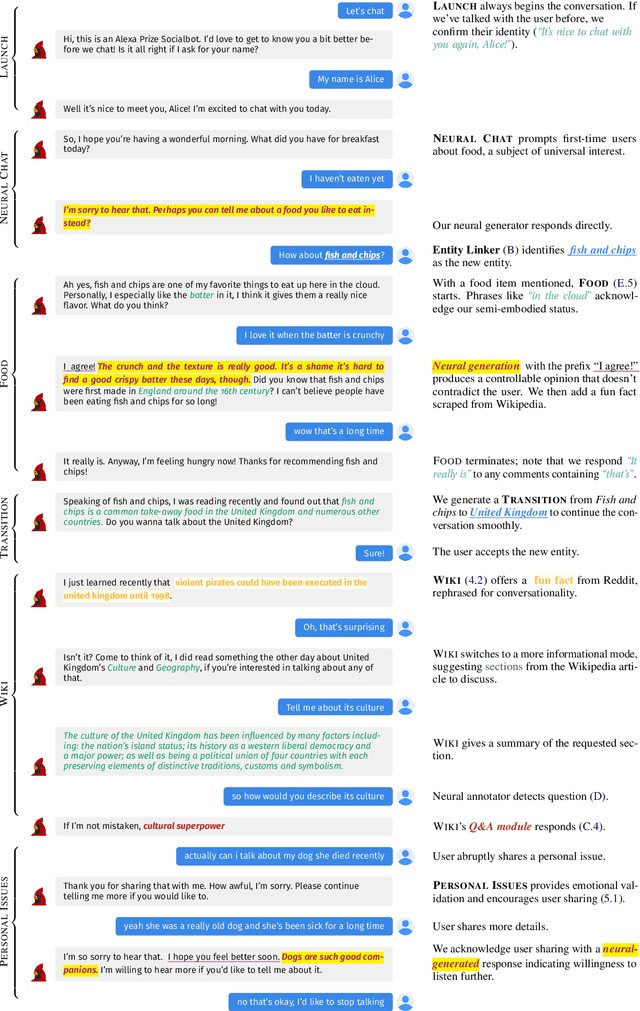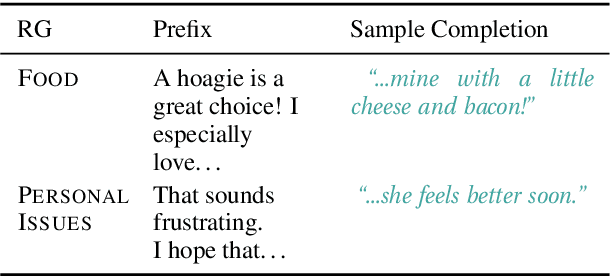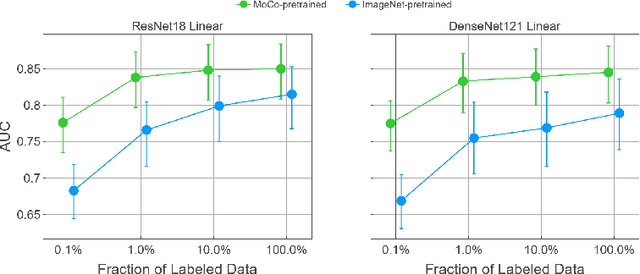Hari Sowrirajan
Neural Generation Meets Real People: Building a Social, Informative Open-Domain Dialogue Agent
Jul 25, 2022



Abstract:We present Chirpy Cardinal, an open-domain social chatbot. Aiming to be both informative and conversational, our bot chats with users in an authentic, emotionally intelligent way. By integrating controlled neural generation with scaffolded, hand-written dialogue, we let both the user and bot take turns driving the conversation, producing an engaging and socially fluent experience. Deployed in the fourth iteration of the Alexa Prize Socialbot Grand Challenge, Chirpy Cardinal handled thousands of conversations per day, placing second out of nine bots with an average user rating of 3.58/5.
MoCo Pretraining Improves Representation and Transferability of Chest X-ray Models
Oct 11, 2020



Abstract:Self-supervised approaches such as Momentum Contrast (MoCo) can leverage unlabeled data to produce pretrained models for subsequent fine-tuning on labeled data. While MoCo has demonstrated promising results on natural image classification tasks, its application to medical imaging tasks like chest X-ray interpretation has been limited. Chest X-ray interpretation is fundamentally different from natural image classification in ways that may limit the applicability of self-supervised approaches. In this work, we investigate whether MoCo-pretraining leads to better representations or initializations for chest X-ray interpretation. We conduct MoCo-pretraining on CheXpert, a large labeled dataset of X-rays, followed by supervised fine-tuning experiments on the pleural effusion task. Using 0.1% of labeled training data, we find that a linear model trained on MoCo-pretrained representations outperforms one trained on representations without MoCo-pretraining by an AUC of 0.096 (95% CI 0.061, 0.130), indicating that MoCo-pretrained representations are of higher quality. Furthermore, a model fine-tuned end-to-end with MoCo-pretraining outperforms its non-MoCo-pretrained counterpart by an AUC of 0.037 (95% CI 0.015, 0.062) with the 0.1% label fraction. These AUC improvements are observed for all label fractions for both the linear model and an end-to-end fine-tuned model with the greater improvements for smaller label fractions. Finally, we observe similar results on a small, target chest X-ray dataset (Shenzhen dataset for tuberculosis) with MoCo-pretraining done on the source dataset (CheXpert), which suggests that pretraining on unlabeled X-rays can provide transfer learning benefits for a target task. Our study demonstrates that MoCo-pretraining provides high-quality representations and transferable initializations for chest X-ray interpretation.
 Add to Chrome
Add to Chrome Add to Firefox
Add to Firefox Add to Edge
Add to Edge